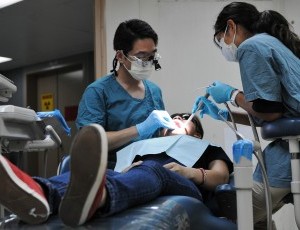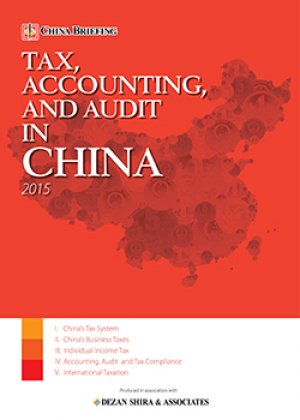China Allows Wholly Foreign-owned Hospitals: a Year On
 By Elizabeth Leclaire
By Elizabeth Leclaire
China’s rapid urbanization, swelling aging population and heightened pollution crisis have triggered a need for improved health care, particularly within China’s largest cities. Within the next three years alone, Chinese healthcare expenditure is predicted to increase at 11.8 percent annually. In order to accommodate for the growing demand for proper health care services, China’s National Health and Family Planning Commission (NHFPC) permitted Wholly Foreign Owned Hospitals (WFOH) in seven Chinese cities and provinces on July 25th, 2014. Under these new regulations, Beijing, Tianjin, Shanghai, Jiangsu, Fujian, Guangdong and Hainan may be home to foreign owned hospitals, but their establishment in any other location within China remains strictly forbidden.
Nevertheless, the expansion of WFOH’s freedom within these seven cities and provinces presents great opportunities for FDIs, so long as investors are conscious of the requirements, limitations, and challenges that come with opening a foreign-owned hospital in China.
Requirements
In addition to the NHFPC’s WFOH location requirements, foreign-owned hospitals must meet several additional criteria:
- WFOH must be capable of independently bearing civil liabilities.
- WFOH must have experience in medical fields, health investment, and management.
- WFOH also must meet national medical institute standards.
- WFOH must be capable of meeting at least one of the following requirements:
- Offering advanced hospital management ideas and service models.
- Offering advanced medical technology and equipment.
- Improving local medical service, technology, funds, or facilities.
- WFOH cannot engage in the practice of Traditional Chinese Medicine (unless foreign investor is from Hong Kong, Taiwan, or Macau).
Application to Establish a WFOH
Foreign investors considering capitalizing upon new WFOH rights in China should bear in mind that the application process to establish a WFOH can often be lengthy in itself. WFOH’s must first file an application for pre-approval to the relevant Municipal Health and Family Planning administration, as well as any local departments of traditional Chinese medicine. If approved, the application will be transferred to the provincial Health and Family Planning administration for a second approval. A final review will be conducted by provincial business departments to determine if the WFOH meets the criteria to establish a hospital within China.
WFOH Freedom
Hospitals in China are divided into three distinct categories: primary, secondary, and tertiary, and foreign investors may establish the hospital that best suits their business needs. Chinese primary hospitals are relatively small, mainly serving local constituents and only capable of housing a maximum of 100 patients.
Secondary hospitals hold between 100 and 500 patients, and typically engage in small scale medical research and medical education in addition to providing health services.
The largest and most comprehensive Chinese hospitals fall under the tertiary category. To qualify as a tertiary, hospitals must be capable of housing a minimum of 500 patients, must offer medical services to larger regions within China, and are required to conduct extensive medical research.
Additionally, WFOHs may choose to establish foreign owned hospitals either as greenfield or brownfield projects. The 2012 Revision of China’s Foreign Investment Catalogue officially allows for the privatization of public hospitals for the first time. This means that WFOHs may independently construct and establish foreign hospitals, convert private Chinese hospitals to foreign hospitals, or even convert public Chinese hospitals into private WFOHs.
As of April 2014, the National Development and Reform Commission, the National Health and Family Planning Commission and the Ministry of Human Resources and Social Security passed a joint policy declaring that private hospital care is required to be included on public medical insurance plans. This shift greatly expanded private hospital’s consumer base, which was previously confined to serving wealthier Chinese who could absorb the private medical costs without relying on insurance.
Employment Challenges
A WFOH in China must again overcome several hurdles even after given clearance to establish the hospital, particularly in the aspect of employment. WFOHs looking to hire foreign doctors should be aware that foreign doctors will only receive permits to practice medicine in China for one year. According to China’s Administration of Foreign Doctors, the WFOH and doctor must both annually resubmit an application in order for the doctor to retain employment in China.
Hiring local doctors can be met with even more complications. WFOHs may encounter difficulty locating Chinese doctors who are willing to change from working at public Chinese hospital to a WFOH. Public hospitals offer guaranteed employment through retirement and are viewed a prestigious occupation. Additionally, employment at more than one hospital is nearly impossible in China, as it requires permission from the original public hospital and relevant health administration department.
Lastly, the very establishment of a WFOH has proven difficult in China. Currently, foreign hospitals from a range of countries including the United States and Germany are in the early stages of entrance into China’s hospital sector. Even a year after its publication, the law remains ambiguous as to specific standards and measures in establishing a foreign hospital. The bureaucratic nature of the WFOH registration process has also stalled the industry’s progress. Although the NHFPC’s allowance of WFOHs indicates China’s willingness for foreign hospital ownership, investors should take caution when entering this relatively new and oftentimes sluggish market.
|
Asia Briefing Ltd. is a subsidiary of Dezan Shira & Associates. Dezan Shira is a specialist foreign direct investment practice, providing corporate establishment, business advisory, tax advisory and compliance, accounting, payroll, due diligence and financial review services to multinationals investing in China, Hong Kong, India, Vietnam, Singapore and the rest of ASEAN. For further information, please email china@dezshira.com or visit www.dezshira.com. Stay up to date with the latest business and investment trends in Asia by subscribing to our complimentary update service featuring news, commentary and regulatory insight.
|
![]()
 China Investment Roadmap: The Medical Device Industry
China Investment Roadmap: The Medical Device Industry
In this issue of China Briefing, we present a roadmap for investing in China’s medical device industry, from initial market research, to establishing a manufacturing or trading company in China, to obtaining the licenses needed to make or distribute your products. With our specialized knowledge and experience in the medical industry, Dezan Shira & Associates can help you to newly establish or grow your operations in China and beyond.
 Employing Foreign Nationals in China
Employing Foreign Nationals in China
In this issue of China Briefing, we have set out to produce a guide to employing foreign nationals in China, from the initial step of applying for work visas, to more advanced subjects such as determining IIT liability and optimizing employee income packages for tax efficiency. Lastly, recognizing that few foreigners immigrate to China on a permanent basis, we provide an overview of methods for remitting RMB abroad.
 Tax, Accounting, and Audit in China 2015
Tax, Accounting, and Audit in China 2015
This edition of Tax, Accounting, and Audit in China, updated for 2015, offers a comprehensive overview of the major taxes foreign investors are likely to encounter when establishing or operating a business in China, as well as other tax-relevant obligations. This concise, detailed, yet pragmatic guide is ideal for CFOs, compliance officers and heads of accounting who must navigate the complex tax and accounting landscape in China in order to effectively manage and strategically plan their China operations.
- Previous Article Nouvelles Opportunités dans le Secteur Aéronautique Chinois
- Next Article Champagne or Sparkling Wine? Geographic Indications in China









